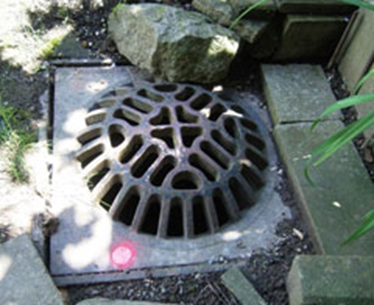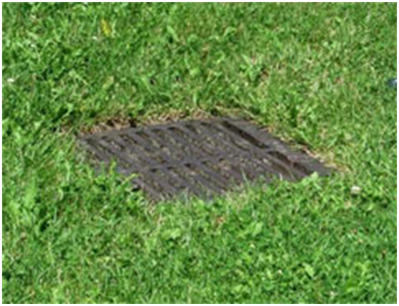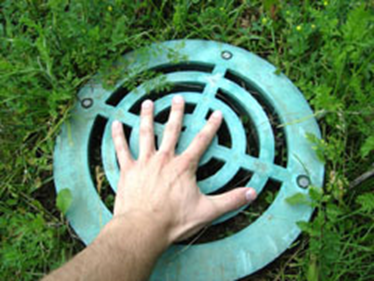Mosquitoes are more than a nuisance, they can also spread diseases. In Wellington-Dufferin-Guelph, the risk of becoming seriously ill from a mosquito-borne disease is low, but it’s important to take steps to protect yourself and your family.
On this page, you’ll find information about:
- Mosquito-borne diseases including West Nile virus (WNV) and Eastern Equine Encephalitis virus (EEEV)
- How you can prevent mosquito bites and reduce breeding areas around your home
- How to report standing water
- How to submit dead birds for testing of WNV
- How to get a municipally-owned catch basin treated
Mosquito-Borne Diseases
Wellington-Dufferin-Guelph Public Health conducts mosquito surveillance for both West Nile virus and EEEV.
West Nile virus
West Nile virus (WNV) is spread through the bites of infected mosquitoes. It causes an infection called West Nile fever. To prevent the spread of WNV, Public Health:
- Monitors the numbers, species and locations of mosquito populations in our communities
- Investigates complaints about standing water on private properties
- Applies environmentally friendly larvicide to standing water (e.g., storm water ponds, catch basins) to reduce the mosquito population
For more information on getting a catch basin on your property treated, see below.
Eastern Equine Encephalitis Virus (EEEV)
The risk of Eastern Equine Encephalitis virus (EEEV) in Wellington-Dufferin-Guelph is very low, but it is still important to avoid mosquito bites.
- EEEV is a mosquito-borne virus that can be transmitted to humans and horses through mosquito bites.
- There is no evidence of human-to-human transmission.
- This virus has been detected in Canada, and human cases in Ontario are very rare. (Note: EEEV is not a reportable disease in Ontario.)
- Symptoms can include fever, headache, nausea, vomiting, malaise, weakness, confusion, and neck stiffness. If encephalitis develops, the fatality rate is high.
How to protect yourself from mosquito bites
Reduce your chance of getting bitten by:
- Wearing light coloured clothing, including long sleeves and pants
- Using a mosquito repellent approved by Health Canada
- Repairing holes in screen doors and windows
Eliminate mosquito breeding areas:
- Get rid of standing water on your property (e.g., drain flowerpots and kids’ pools, replace water in bird baths often)
Report standing water
Complaints about standing water, including unmaintained ornamental ponds and swimming pools on private property, can be directed to the Property Standards / By-law Enforcement Department in the town or municipality where the property in question is located.
|
Investigating Agency |
Contact Information |
|---|---|
|
City of Guelph |
Contact the Property Standards Inspection Department at (519) 837-5615 ext. 2526 |
|
Centre Wellington |
Submit online here, in person at the Municipal Office at 1 MacDonald Square, Elora, ON, N0B 1S0 or by telephone (519) 846-9691 ext. 237 |
|
Town of Orangeville |
Submit by email to bylaw@orangeville.ca, or by calling the town at (519) 941-0440 |
|
Wellington North |
Submit online here, or by telephone at (519) 848-3620 |
|
Town of Minto |
Contact the Town of Minto Property Standards By Law Enforcement Department by phone (519) 338-2511 ext. 236 |
Standing water complaints for all other areas can be directed to Wellington-Dufferin-Guelph Public Health at 1-800-265-7293 ext. 4753 or email PHI.intake@wdgpublichealth.ca.
Submitting dead birds for testing of WNV
WDGPH no longer collects birds for West Nile virus surveillance, however certain dead birds may be submitted to the Canadian Wildlife Health Cooperative (CWHC) at the Ontario Veterinary College under certain circumstances, and depending on the physical condition of the bird.
CWHC may accept:
- Birds of prey and water birds (hawks, owls, eagles, ospreys, herons, loons, etc.)
- Songbirds (e.g., robins, finches, chickadees, warblers)
- Corvids (crows, ravens, blue jays)
CWHC assesses each submission request on a case by case basis, so please call ahead to discuss the situation. Casual drop-offs will likely not be accepted. For more information, call the CWHC at 1-866-673-4781 or 519-824-4120 ext. 54662.
Catch basin treatment
Catch basins are similar to storm sewers. They collect water after rainfalls and when snow melts. This standing water may become a breeding area for mosquitoes.
If you have a municipally owned catch basin on your property and would like it treated, please complete and submit our waiver form in the spring. If your catch basin was treated last year, you will receive a letter and waiver form for re-treatment ahead of the next summer season.
The product used is called Altosid Briquets XR. For more information about the product, view the label (PDF, 2 pages, 1 MB) or material safety data sheet (PDF, 4 pages, 32 KB).
Typical backyard catch basins look like this:


This is not a catch basin:

